Roma & Sinti rights, Resistance & Facial Recognition: RYF in Conversation…
For communities that have been historically sidelined, the promises of digitalisation can instead become a vessel for yet more discrimination and unequal treatment. Facial recognition in particular has a sinister and dark history which links to the persecution of Romani communities. If you missed our webinar on Roma and Sinti rights and the rise of facial recognition across Europe, you can catch up here and learn what the digital rights community can and should do!
Filter resources
-
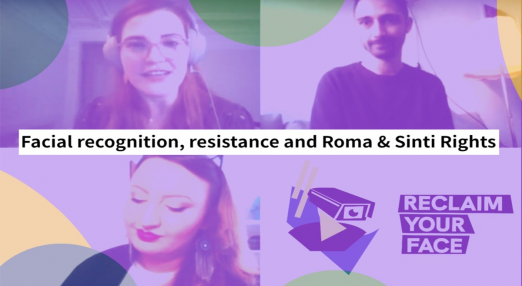
Roma & Sinti rights, Resistance & Facial Recognition: RYF in Conversation…
For communities that have been historically sidelined, the promises of digitalisation can instead become a vessel for yet more discrimination and unequal treatment. Facial recognition in particular has a sinister and dark history which links to the persecution of Romani communities. If you missed our webinar on Roma and Sinti rights and the rise of facial recognition across Europe, you can catch up here and learn what the digital rights community can and should do!
Read more
-
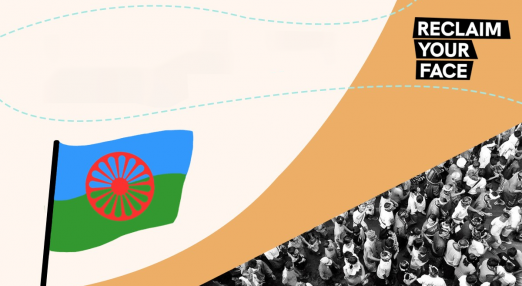
Romani rights and biometric mass surveillance
The rights of Romani people should be an important topic for anyone that cares about digital rights. In this blog, hear from experts in Roma, Sinti and digital rights about why facial recognition is an important issue (and what the rest of the digital rights community can learn), and check out the Reclaim Your Face campaign’s first ever resource in the Sinti language!
Read more
-

NGO demands disclosure of A1 Telekom Austria Group’s entanglements in Belarus
EDRi's member epicenter.works protested in front of the A1 Telekom Austria Group’s building in June 2021 to raise awareness of the involvement of the partially state-owned company in the internet shutdowns in Belarus that unfolded around the controversial election of the long-term dictator Lukaschenka. The protest was accompanied by attacks by the company against the non-profit NGO.
Read more
-
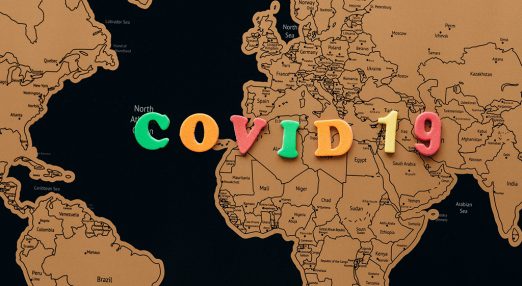
Five reasons to claim victory on the EU Digital COVID Certificate
On 8 June 2021, the European Parliament voted on the interinstitutional compromise text on the regulation(s) on the EU Digital COVID Certificate (EU DCC, also known as the Digital Green Certificate and the European Green Pass). The proposed legislation regulates the “framework for the issuance, verification and acceptance of interoperable certificates on vaccination, testing and recovery” with aim of facilitating free movement during the COVID-19 pandemic.
Read more
-

Telecom reform in Austria: consumers must benefit from Router Freedom
Austria is reforming its telecommunications law to incorporate the new European directives on electronic communications. The Austrian government has now an unique opportunity to leverage router freedom at the legislative level to protect consumers and the market. EDRi's member epicenter.works sheds some light on the reform.
Read more
-

Spotify, don’t spy: global coalition of 180+ musicians and human rights groups take a stand against speech-recognition technology
“You can’t rock out when you’re under constant corporate surveillance. Spotify needs to drop this right now and do right by musicians, music fans, and all music workers.” - Tom Morello
Read more
-

EU Parliament adopts the Covid Pass: risks for data protection and new forms of discrimination
At first glance, teh Digital Green Certificate may sound interesting, but upon further reflection, it quickly becomes clear that the proposed system has the potential to divide society and expose certificate holders to far-reaching surveillance by the authorities that issue the documents. Even worse, it exacerbates inequalities and increases social exclusion, shares EDRi's member epicenter.works.
Read more
-

Dominant tech companies make their products incompatible deliberately
Imagine buying a new dining table from IKEA and although it’s a great table, it can only be used with IKEA-made chairs. For security reasons, the furniture maker tells you, the table is incompatible with chairs from third party vendors, sorry. Sounds ridiculous? Welcome to today’s online platform economy.
Read more
-
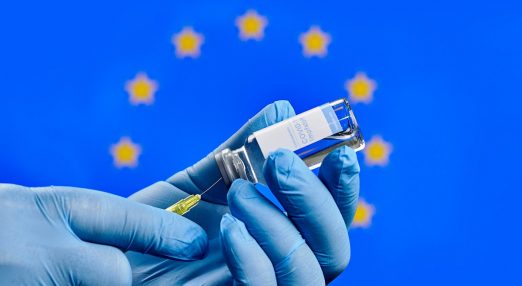
EU: New “ad-hoc working group” on vaccine passports starts work – in secret
EDRi's member Statewatch shares that discussions amongst EU member states on how to approach plans for digital vaccination certificates are taking place in a new "ad-hoc working group", a format that is not likely to foster transparency - particularly given that the group has said it will not be keeping "minutes as such".
Read more
-

Creating Conditions for a Decolonised Digital Rights Field
Since 2019, DFF and EDRi have been working to initiate a decolonising process for the digital rights field. Reflecting on the increased challenges to our digital rights, we realised how imperative it is that the field truly reflects everyone in European society. This means improving representation in the digital rights field, but more crucially undoing the power structures preventing us from protecting digital rights for everybody.
Read more
-

Why the electronic green vaccination certificate creates new problems instead of solving them
The National Council in Austria passed a legal basis for the electronic immunity certificate project within two days, skipping any kind of review procedure. The digital passes are not a ticket to a normal life, vaccination is. So, special attention should be paid to maintaining the trust of people and the voluntary nature of vaccination, ensuring that people's rights to privacy and freedom of choice are respected. EDRi's member epicenter.works explains what are the concerns with the deployment of green certificates and suggests alternatives to this project.
Read more
-
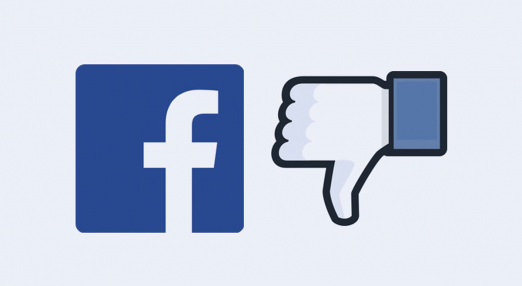
Why Facebook’s proposed hate speech policy on Zionism would only add fuel to the fire
Pressured to combat surging hate speech and anti-Semitism on its platform, Facebook is looking into how it should moderate the use of the word “Zionist,” and whether to add the term as a protected category under its hate speech policy. EDRi's member Access Now doesn’t think that is a good idea, particularly given Facebook’s inability to strictly adhere to human rights principles in its content moderation practices.
Read more
